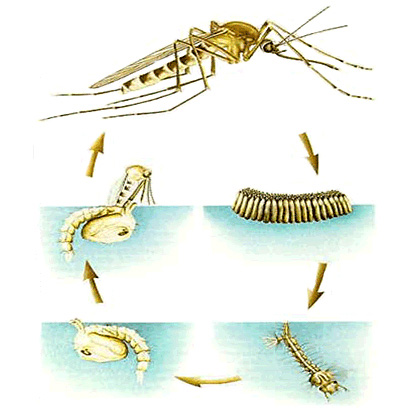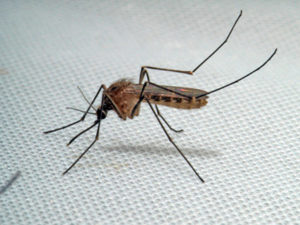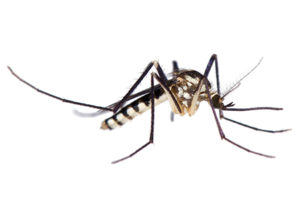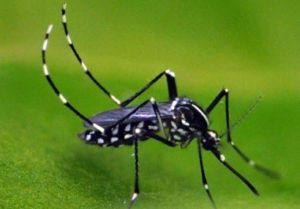In order to prevent and control mosquitoes, it is important to understand their life cycle, biting and breeding habits, and the mosquitoes in Ohio carry disease.
Life Cycle
Mosquitoes have four separate stages in their life cycle. They begin as eggs that are laid atop or near bodies of water either singularly or in clusters called rafts. The eggs then hatch into larvae and live in the water. Larvae go through four stages of their own called instars before molting into pupae. It is in the pupal stage that the adult mosquito begins to form. Within a few days the cycle will be complete with the adult emerging on the surface of the water where it will then fly.
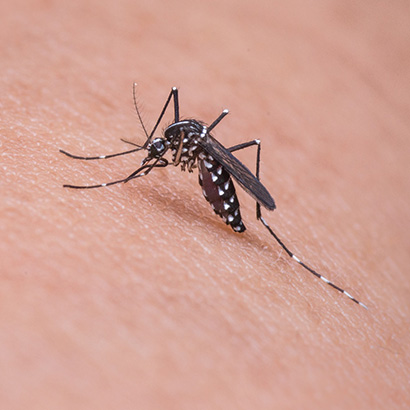
Biting and Breeding Habits
Mosquitoes feed primarily on nectar but the female must take a blood meal before she can produce her eggs. The male mosquito does not need a blood meal and therefore does not bite. Most female mosquitoes only mate once, after which they are capable of producing eggs on their own, with the help of another blood meal of course. Female mosquitoes typically live for about a month, but can produce up to 1,000 eggs in their lifetime.There are over 60 different species of mosquitoes in Ohio. It is important to remember that not all mosquitoes carry diseases and most prefer not to bite humans. There are however, several species of mosquitoes that carry diseases such as West Nile virus, La Crosse and St. Louis encephalitis. Here are some common mosquitoes in Ohio and the diseases they can carry:
Culex pipiens
- Active in the evening
- Breeds mostly in stagnant water and containers
- Mostly feeds on birds but will bite humans
- Primary vector for West Nile virus and St. Louis encephalitis
Aedes triseriatus
- Active during the daytime
- Found mostly in wooded areas and breeds in tree holes
- Feeds on small mammals and will bite humans
- Primary vector for La Crosse encephalitis
*Please note that these diseases have not been found to be locally acquired in Ohio. People contract these diseases when traveling to areas where the disease is present. Because of the aggressive nature of this mosquito and it is a good vector for disease, FCPH monitors the population of these mosquitoes closely and implements control.


